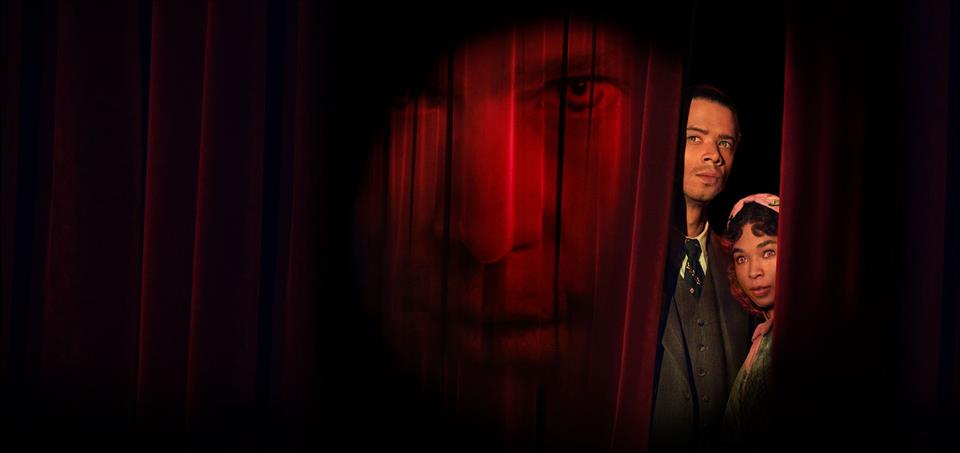
Interview With The Vampire Season Two: A Hyperintelligent Musing On Trauma And Immortality
This is not a problem for series creator Rolin Jones. His adaptation of Anne Rice's bestselling 1976 novel, largely greeted with enthusiasm by fans , is successful precisely because it thoroughly overhauls Rice's meditation on immortality to fit our own times.
Season one garnered plaudits for its complex treatment of queer sexuality, coercive relationships and race. These themes are all still very much present in season two. It finds Louis and Claudia enjoying the lack of segregation and permissive sexual mores of postwar Paris, even as they deal with the aftermath of their relationship with their vampire“sire”, Lestat (Sam Reid).
What is arguably most exciting about season two, however, is how it reflects on the way we tell stories about ourselves in a mass media age. It addresses our need to share our inner selves with an audience – and how we construct our public identities through different kinds of performances that may never quite be the truth.
In Rice's original novel, vampire interviewee Louis complains of feeling like an outsider,“at odds with everything”. He is told by his companion Armand:“This is the very spirit of your age.” Louis embodies modernity, and this is what makes him so attractive to the centuries-old vampires who must grasp their purpose in a rapidly changing world, or die.
Jones's decision to update the setting of the original novel from the late 18th and 19th centuries to the early 20th century means that Louis and Claudia's arrival in Europe coincides with the embrace of modernism. Louis tries his hand at photography – although it's inconvenient not being able to shoot in sunlight. He decides to go in for capitalism instead, and discovers a penchant for dealing art that presumably helps fund his 21st-century hideout among the super-rich in Dubai.
Read more: Three essential tales of black vampirism
In season two Claudia enjoys the modern style of postwar Paris. Larry Horricks/BBC/AMC Network Entertainment
Claudia, on the other hand, joins the Théâtre des Vampires, a company using an innovative blend of live performance and projected animation to dupe the audience into believing that the ritual of vampiric predation they are watching is, in fact, an illusion.
The audience is full of fans – mainly, it seems, British tourists – who dress up as the vampires on stage and thrill when they are spattered with red corn syrup. There is an air of Rocky Horror to it all. The Rocky Horror Show and its film adaptation were, of course, contemporaneous with Rice's novel.
The Théâtre des Vampires is at the core of this season because it foregrounds the porousness of fact and fiction, and the idea of storytelling and performance as ways of controlling the narrative. As such, it mirrors the theme of the series' other timeline, in which journalist Daniel Molloy (Eric Bogosian) interviews the present-day Louis for the scoop of a lifetime.
Vampire metafictionRice's decision to tell her vampire story in the form of an interview chimed with a postmodern embrace of“metafiction” – fiction about fiction, or fiction that draws attention to its own status as writing.
The interview also updates an earlier gothic tradition of frame narratives (where a story is used to tell a story) and found manuscripts. Joseph Sheridan Le Fanu's 1872 story of a female vampire, Carmilla, is presented as a medical case study of one of her victims. Bram Stoker's Dracula (1897) combines a series of firsthand accounts recorded via diary, letter, newspaper clipping and phonograph cylinder, all collated by Mina Harker and her typewriter.
These conceits ostensibly prove the authenticity of the story – these are firsthand witnesses – but often simultaneously undermine it through unreliable narrators and conflicting accounts.
The trailer for season two of Interview with a Vampire.
Season one of Interview with the Vampire enhanced the metafictional dimension of its source material by making Daniel a more active participant in the production of the narrative, questioning and commenting on Louis' story as he tells it. Season two progresses further into metafiction by emphasising the potential of digital media to complicate our ideas of truth and privacy.“How do vampires hide from Google?” Daniel asks a bemused Armand (Assad Zaman).
A set of files deposited on Daniel's laptop by an unknown hacker throws doubt on the veracity of the story so far. Episode five, when we discover what really happened when Louis first met Daniel back in the 1970s, becomes a meditation on trauma and the reliability of memory. This interview is more than just a recounting of the past, but also what psychotherapy would call a form of“working through”. What happens to trauma, the series asks, if you live forever?
This is more than eroticism and gore – although there is plenty of that to please those fans awaiting their drenching with corn syrup – it is hyperintelligent television, unafraid to ask the big questions.
But in case you thought it was all getting too dark – and dark this season certainly gets – the trailer for season three, based on Rice's sequel The Vampire Lestat, has already dropped. When it comes to metafiction, Lestat inevitably raises the stakes, but he does it in his own irreverent style – in lime green marabou.
Looking for something good? Cut through the noise with a carefully curated selection of the latest releases, live events and exhibitions, straight to your inbox every fortnight, on Fridays. Sign up here .
-
Television
TV
Vampires
TV review
Anne Rice
Give me perspective

Legal Disclaimer:
MENAFN provides the
information “as is” without warranty of any kind. We do not accept
any responsibility or liability for the accuracy, content, images,
videos, licenses, completeness, legality, or reliability of the information
contained in this article. If you have any complaints or copyright
issues related to this article, kindly contact the provider above.


















Comments
No comment